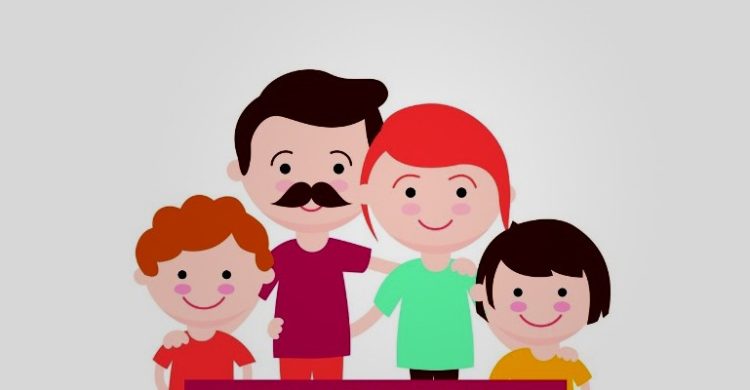
A child’s development process is largely influenced by a blend of various stimuli, resulting from the environment and the individuals that the child comes in contact with. As such, it is naturally the parents who have the most significant impact on the development of children, both cognitively and socially. The way the parents respond to and discipline the children determines how well they grow into responsible adults. We, at Banyan Tree School, one among the top rated CBSE schools in Chandigarh, believe that the parenting style lays the foundation for the growth of the young minds, and it decides whether the development is positive or negative. It is only with the right parenting style that children can grow positively in terms of self-esteem, cognitive development, behaviour, and intellectual abilities.
Types of Parenting Styles:
There is certainly a cause-and-effect link between the parenting styles and the children’s behaviour. It is hence important for parents to ensure that their parenting style is supportive and appropriate for their children. Everything from disciplinary strategies and communication styles to feelings of affection and expectations of maturity and control influence the child’s development. It is therefore crucial that you identify your parenting style and its impact on kids, and accordingly modify the same to aid in the optimal growth of your little, budding genius.
Authoritarian Parenting
Authoritarian parenting is a dominating style with a great deal of control and adherence to rules but offers low levels of responsiveness and communication. Children of an authoritarian parent often lack critical social skills and have difficulty in making social relationships as they exhibit similar authoritarian style in their interpersonal relationships. They often feel insecure, indecisive, and tend to have low self-esteem, which results in behavioural issues.
Permissive Parenting
Permissive or indulgent parents are too attentive to their child’s needs, and provide a great deal of support, warmth, and interaction to their wards with fewer rules and constraints. When parents seem to be more like friends, it induces a greater level of creativity and engagement in children. However, the non-confrontational environment without structure and limits can be destructive to the development of young minds, often resulting in the lack of responsibility, self-discipline, self-control, and motivation. Moreover, such children are often unaware of the importance of consequences of their actions, are mostly temperamental, and end up lacking emotional empathy.
Uninvolved Parenting
Uninvolved or Neglectful parents remain ambivalent to the child’s needs/wants and tend to not engage much with them. Often, this kind of parenting is associated with negligence and abuse. Children of neglectful parents are raised in an environment that has neither rules or demands nor communication or encouragement. Such parents who are psychologically or physically unavailable for the child negatively affect their development, particularly the child’s sense of self-esteem, psychological well-being, ability to trust, and social skills. They also experience behaviour problems due to lack of self-control and stunted social development.
Authoritative Parenting
Authoritative parenting, compared to other styles, aids better in healthy childhood development. Children are raised in an environment where parents balance demands with a high level of responsiveness so that children grow up with higher social competencies and self-esteem. They regularly discipline them in a supportive, non-punitive way, and encourage them to remain independent while setting necessary limits and boundaries. Under authoritative parenting, the child’s social skills, self-reliance, and self-control are highly developed, and therefore it is considered to be the optimally parenting style for most children.
We, at Banyan Tree School, believe that being the best parent is all about maintaining a positive relationship with your child while establishing your authority on them in a healthy manner. This way, you can help your child grow and develop into a responsible, empathetic human being. However, there is no universally accepted ‘best’ style of parenting. While different parenting styles bring about varying developmental outcomes, other factors such as social and cultural influences, child’s perceptions of parental treatment, and the child’s innate personalities also play a role in determining the child’s behaviour and development. There are, though, evidences that certain patterns of behaviour are linked to particular parenting styles. Hence, depending on your child’s personality, temperament, needs, and circumstances, you can implement the one that best suits them.
